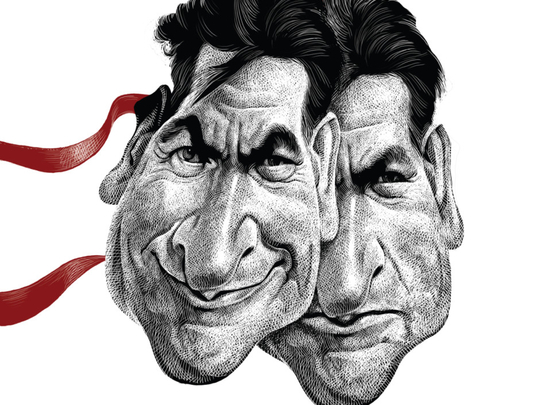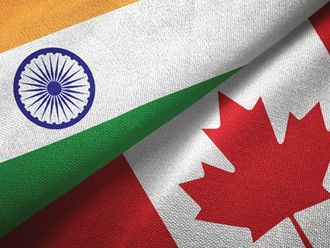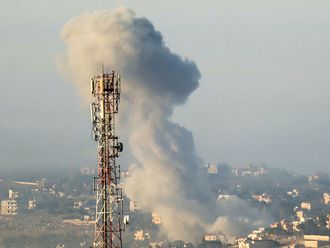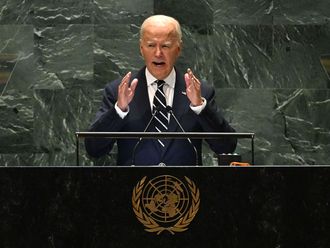
Charlie Sheen has long been a reckless character of surreal weirdness, but his public announcement on Tuesday that he is HIV positive played like a strange soliloquy inside a titillating drama that revealed as much about him and his troubles as it did our frenetic, confessional, media-saturated times.
His tie loosened, his collar open, Sheen was penitent, victim and shape-shifter in an interview with Matt Lauer on the Today show. He was the damaged scion for the age of reality TV, a ubiquitous celebrity whose tumble from fame into medical and legal uncertainty lighted up Twitter and flashed across YouTube with the bracing intensity of a California bush fire.
“I am, in fact, HIV positive,” said Sheen, 50, who added that he had known about his condition for four years. “It is a hard three letters to absorb.”
His account read like a pitch for a Netflix series: Secrets, shakedowns, a cellphone picture of pharmaceuticals, depression and the prospect of civil suits. Sheen said he had paid at least $10 million (Dh36.78 million) in recent years to keep people quiet who he claims threatened to expose his diagnosis. He told how one of his daughters handled the news like “a rock star” and that he’s a survivor peering at an unwritten cliffhanger of a morality tale.
The announcement was reminiscent in some ways of Magic Johnson’s revelation in 1991 that he was HIV positive. The world gasped then, when HIV was considered more of a death sentence. With fewer medical treatments and antiretroviral drugs, Johnson, a basketball star of mercurial glee and appeal, was cast for many as the tragic victim of a cruel, ravaging disease.
AIDS and HIV are still a scourge. The sympathy for Sheen, however, may not be deep or palpable. We may be too numb for another of his troubles. His “winning” rants and public slide through drugs, alcohol and other self-inflicted misdemeanours have made the onetime highest paid actor on TV a kind of misbegotten cousin with a ruinous streak.
Instead of sympathy, eyes roll. There is that moment of initial surprise of “What did he do this time?” But his news arrived amid a Paris in mourning, a contentious and colourful presidential campaign in the United States and existential questions over the designs of Daesh (the self-proclaimed Islamic State of Iraq and the Levant). Against this backdrop he came across as an ageing Bud Fox, the petulant and insatiable stockbroker he portrayed in the 1987 film Wall Street. A tormented shadow of a distant self, yet always the salesman.
But we are not faultless. Tabloids revelled in his accumulating demises. Fans and voyeurs chronicled his sins and listened in on his demons, smug, as he is arrogant, in their judgements. Yet, sitting before Lauer, Sheen, aglow in makeup and looking resolute, spoke as if a man purging himself. Of the people he claims blackmailed him, he said, “I release myself from this prison today”.
Of his chances for a comeback, the actor who starred in Two and a Half Men, said: “I’ve been up. I’ve been down. I’ve been rich. I’ve been poor. I’ve been unemployed. It’s another chapter in my life.”
He insisted it was “impossible” that he had infected anyone. In addressing his unnamed accusers, Sheen sounded like a mash-up of Shakespeare and an overindulgent blogger: “Sadly, my truth soon became their treason, as a deluge of blackmail and extortion took centre stage in this circus of deceit.”
Sheen said he informed his ex-wives, Denise Richards and Brooke Mueller, of his condition. But his former girlfriend Bree Olson said Sheen never told her. She said she had tested negative for HIV.
Reactions on Twitter were satirical, harsh, comical and compassionate. One tweet read: “Making fun of HIV/AIDS is not ok. Making fun of Charlie Sheen is still ok. True in the 80s, still true today.”
Despite the news, Sheen is bankable. Repeats of Two and a Half Men remain popular, ranking third among sitcoms in syndication with 3.8 million viewers. Sheen continues to have an ownership stake. The show’s advertisers were already aware of Sheen’s reputation and have made their peace with it. An HIV diagnosis is not likely to scare them off.
“At this stage, it would be unlikely that they would react to his medical condition,” said Bill Carroll, senior vice-president for Katz Media Group, which advises TV stations on programming. Oriol Gutierrez, editor-in-chief of Poz, a publication that chronicles the HIV and AIDS epidemic, agreed that Sheen is already a polarising figure, but was hopeful his condition would be judged in the same light as his previous issues.
“I hope he can still have a career,” Gutierrez said. “Hollywood is not immune from the stigma of HIV. Obviously he felt he couldn’t disclose for years and that in itself should tell you the power of stigma, not just in Hollywood but in society in general. That’s going to have an impact. But we’re talking about Charlie Sheen — there are plenty of other reasons not to give him an opportunity.”
Howard Bragman, chairman of the public relations agency Fifteen Minutes, said Sheen needs an image reinvention.
“Mel Gibson can work, why can’t Charlie Sheen?” Bragman said. “The question is will he do what it takes to work. Will he be willing to take a great character role? Will he be able to look at something that is not a 100 guaranteed episodes. You’re at a point where you have to look at the roles and not the money. Comedy is great, but there are a lot of ways to go with it. He doesn’t have to look at a tiny movie or an indie movie. But to show a little humility would be good.”
Humility, of course, is not his strong suit. But we still keep watching.
— Los Angeles Times












